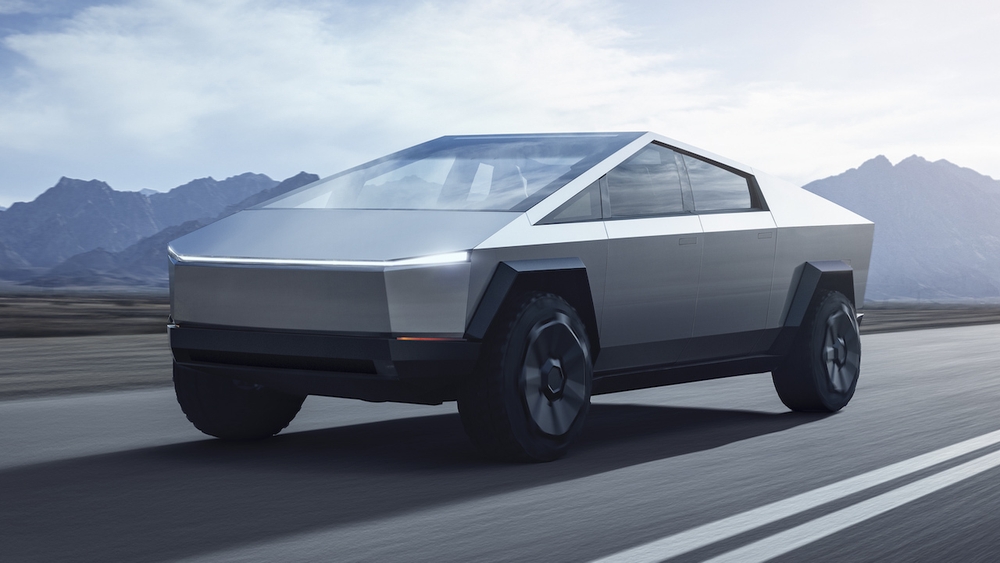Published
- 5 min read
Tesla recalls over 27,000 Cybertrucks in the USA

Tesla has announced a recall for over 27,000 Cybertrucks in the United States due to a critical issue affecting the rearview camera system. The recall is tied to a delay in the camera display that could impair driver visibility, increasing the risk of accidents in certain situations. The issue occurs when the system doesn’t fully shut down before restarting, resulting in a delayed camera image display when the vehicle is placed in reverse. The recall was reported by Reuters on Thursday, marking it as the largest Cybertruck recall since the model’s launch in 2023.
Why is this recall important?
The Tesla Cybertruck, introduced in late 2023, is a highly anticipated electric vehicle (EV) with futuristic design and advanced technology. However, the recall highlights the potential challenges faced by automakers, especially when new technologies are integrated into mass-market vehicles. This recall involves a delay in the rearview camera display, which can cause a dangerous six to eight second delay before showing the reverse view, instead of the usual two seconds. This delay poses a risk, particularly in narrow spaces or when quick maneuvers are required, as drivers might find themselves unable to see obstacles or pedestrians behind the vehicle in time.
Tesla’s recall is important not just because of the safety implications but also because it underscores the role that software plays in modern vehicles. Fortunately, this issue can be resolved with a software update, meaning owners do not have to bring their vehicles to a service center — a common Tesla approach for addressing software-related issues remotely.
Impact on Tesla’s reputation
This recall could have significant implications for Tesla’s reputation, especially for a model as high-profile as the Cybertruck. While Tesla is known for its cutting-edge technology, including full self-driving (FSD) features and over-the-air software updates, frequent recalls can undermine public confidence in the brand’s reliability. For a vehicle like the Cybertruck, which is Tesla’s first venture into the pickup truck market, maintaining a flawless reputation is crucial for competing against traditional brands like Ford, GM, and Rivian.
Previous recalls: A pattern with the Cybertruck?
The Cybertruck has faced several recalls and production delays since its introduction. The April 2024 recall was issued to address a problem with a loose pedal cover on the accelerator, which could have resulted in the pedal becoming stuck during use. This issue was resolved quickly, but it raised concerns about the vehicle’s production quality. Additionally, in June 2024, Tesla initiated another recall to fix issues with the windshield wipers and exterior trim, which were found to be defective in certain conditions. These recalls, combined with the current one, have led to some concerns about the durability and reliability of Tesla’s latest vehicle.
Despite the futuristic design and promises of high durability, Tesla has struggled with production delays. The Cybertruck’s launch was originally planned for 2021, but it was delayed multiple times, largely due to issues in scaling battery production and managing the supply chain for critical EV components. These delays, combined with the series of recalls, show that Tesla is still working through the complexities of bringing such a revolutionary vehicle to market.
Technical cause and solution
Tesla has explained that the rearview camera delay issue stems from a flaw in the system process. Specifically, the vehicle’s internal systems do not completely shut down before restarting, leading to a lag when the reverse camera is activated. Normally, a rearview camera image should appear within two seconds after the reverse gear is engaged. However, in affected Cybertrucks, the image can remain black for up to six to eight seconds before displaying, creating a significant safety hazard.
This issue is especially dangerous in urban environments, tight parking spaces, or other situations where immediate visibility is critical. Fortunately, Tesla has already implemented a fix in its ongoing production lines, ensuring that all newly produced Cybertrucks come equipped with the updated software that corrects the delay.
Owners of affected Cybertrucks do not need to bring their vehicles to a service center. Tesla will roll out an over-the-air software update to all impacted vehicles, which will resolve the issue remotely. This approach demonstrates Tesla’s ability to leverage its advanced software systems to handle such problems efficiently, minimizing inconvenience to owners.
Future implications for Tesla and Cybertruck owners
This latest recall highlights the growing importance of software management in modern vehicles. As vehicles become increasingly reliant on advanced electronics, software glitches can have a major impact on vehicle safety. Tesla’s use of over-the-air software updates allows the company to fix problems like this without needing customers to visit a dealership or service center, but it also emphasizes the critical role software plays in ensuring the safe operation of a vehicle.
For Cybertruck owners, the recall may raise concerns about the vehicle’s long-term reliability. However, Tesla’s ability to quickly identify and address these issues through software updates can provide some reassurance. The Cybertruck remains a groundbreaking vehicle, pushing the boundaries of what electric pickup trucks can offer, and Tesla is working diligently to maintain its innovative edge while improving reliability.
The broader recall trend at Tesla
The Cybertruck recall is part of a broader trend of recalls across Tesla’s vehicle lineup. Earlier in 2024, Tesla issued recalls for other models, including the Model S, Model X, and Model Y, for similar software-related issues. These recalls have ranged from minor software fixes to more significant hardware concerns.
Despite these recalls, Tesla remains one of the leading innovators in the automotive industry, with a strong focus on electric vehicles, autonomous driving technology, and sustainability. However, the recalls also show that Tesla is not immune to the challenges that come with mass production, even for a company as tech-forward as Tesla.

Douglas K. Richey is a freelance writer and editor with over 15 years of experience in the automotive industry. He has worked as a writer, editor, and content manager for a variety of publications.